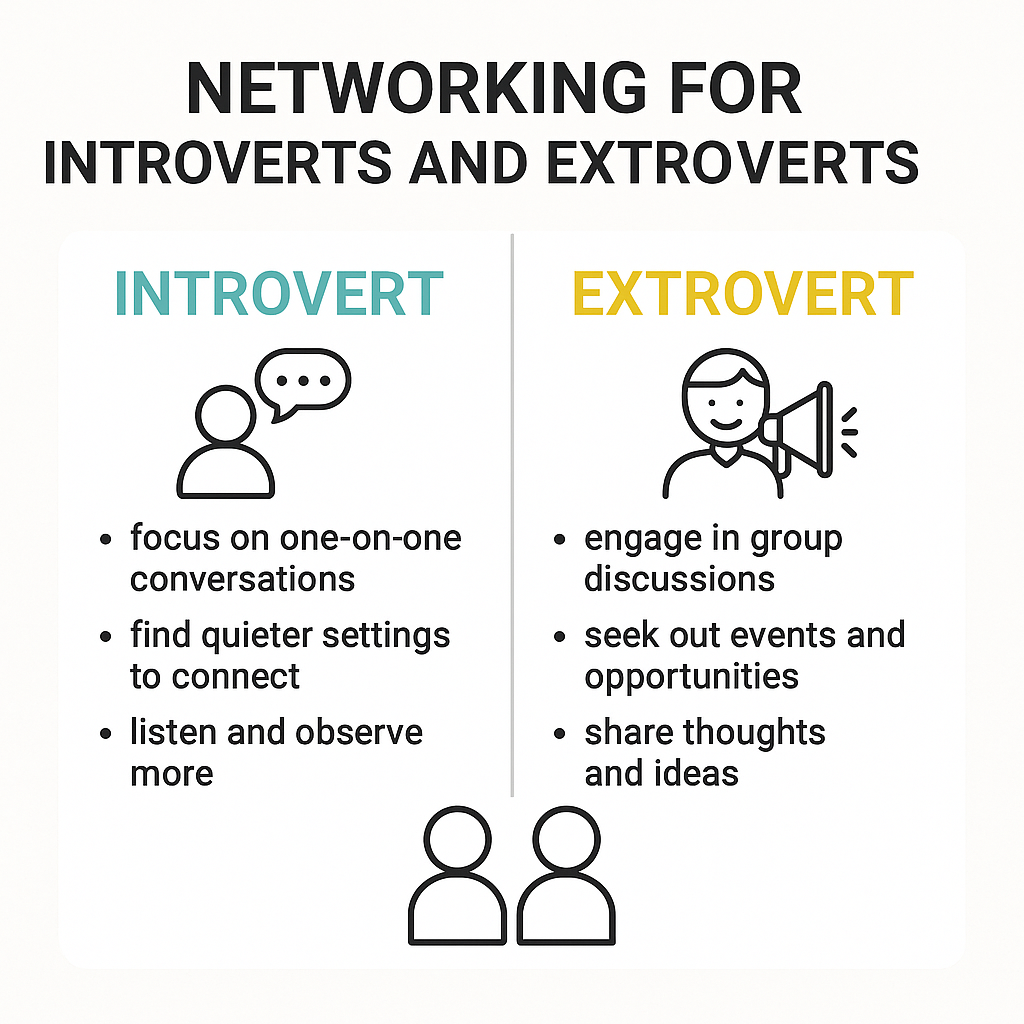Not All Networking Is Created Equal: How to Network in a Way That Works for You
Networking is often seen as an essential part of building professional relationships and growing your business, but the reality is that not all networking experiences are created equal. Many people find networking events to be awkward, draining, or ineffective. But it doesn’t have to be that way.
Understanding your personality type—especially whether you identify as an Introvert or an Extrovert—can help you network more effectively. And when you combine your personality preferences with strategies tailored to your strengths, you can make networking work for you, not against you. This approach, rooted in the MBTI (Myers-Briggs Type Indicator), can be a game-changer in how you approach building relationships.
Why Networking Feels Awkward for Many
Have you ever left a networking event feeling like you weren’t truly heard, or worse, like you were just another face in the crowd? Or perhaps you came away with stacks of business cards but no clear idea of how to follow up or take meaningful action?
This feeling of networking fatigue is common, especially when you feel like the event wasn’t aligned with your personality or needs. Traditional networking events often focus on superficial conversations, leaving you with a pile of contact details but no genuine connections. This results in drained energy rather than energising relationships.
Networking shouldn’t leave you feeling exhausted or overlooked. Instead, it should be an opportunity to build authentic, lasting connections that support your personal and professional growth.
The Right Kind of Networking: Tailoring to Your Personality
When you network in a way that aligns with your personality, the results are far more rewarding. Networking should make you feel:
-
Heard, not just seen: You should feel valued and understood in conversations. Your unique perspective should be acknowledged.
-
Clarity, not fatigue: The right interactions will leave you feeling energised, offering clarity and valuable insights.
-
Remembered and followed up with: True networking builds long-term relationships, not just a collection of business cards.
By understanding how you interact with others in a social setting, you can better optimise your networking experience. If you’ve ever felt overwhelmed or out of place at networking events, it might be because your style didn’t match the environment.
Understanding the Role of MBTI in Networking
The MBTI is a well-known personality assessment that helps people understand their psychological preferences in how they perceive the world and make decisions. One of the key elements of the MBTI is whether you are an Introvert or an Extrovert, which can significantly influence how you approach networking.
-
Extroverts thrive in large social settings, drawing energy from interacting with others. They enjoy engaging with people, initiating conversations, and taking a leadership role in group discussions. For extroverts, networking is an energising opportunity to meet as many people as possible, exchange ideas, and build a wide network of contacts.
-
Introverts, on the other hand, often feel drained by large crowds and superficial interactions. They excel in one-on-one conversations or small groups, where they can build deeper, more meaningful connections. For introverts, networking doesn’t have to mean attending large events. Instead, they can thrive by seeking out intimate settings where they can engage in focused, thoughtful conversations.
Knowing whether you’re an Introvert or Extrovert helps you shape how you network. It enables you to find environments that feel comfortable, where your natural strengths are appreciated, and where you can build genuine, supportive connections.
Networking Tips for Introverts
If you’re an Introvert, you don’t have to force yourself into large networking events where you feel uncomfortable. Here are a few tips to help you network effectively:
-
Leverage one-on-one connections: Instead of trying to work the room, focus on building meaningful relationships with a select few people. It’s easier to connect on a deeper level when you’re not overwhelmed by a crowd.
-
Prepare in advance: Think about what you want to discuss before attending an event. This can help you feel more confident and ensure that you steer conversations in a way that aligns with your strengths.
-
Set clear intentions: Focus on quality, not quantity. Set a goal for a few meaningful interactions rather than trying to meet everyone in the room.
-
Follow up thoughtfully: After the event, reach out to people with a personalised message. You’ll be remembered for your thoughtful approach.
Networking Tips for Extroverts
If you’re an Extrovert, you’ll likely feel comfortable in larger groups and enjoy socialising. To network more effectively:
-
Embrace leadership: Use your social energy to initiate conversations and take on leadership roles at networking events.
-
Balance depth and breadth: While engaging with many people can be energising, make sure to have a few deeper, more focused conversations that can lead to real connections.
-
Follow up with intention: It’s easy for extroverts to collect a lot of contacts, but ensuring you follow up and maintain those connections is key.
Conclusion: Optimising Networking for Your Personality
Networking should never feel like a chore. By understanding whether you’re an Introvert or Extrovert, and aligning your networking strategy with your personality type, you can create genuine, supportive relationships that help you grow. It’s not about working the room—it’s about working the right room, in a way that feels comfortable and authentic to you.
With the right mindset and approach, networking can become an empowering tool that helps you build lasting, meaningful connections, rather than leaving you feeling drained and overwhelmed.

